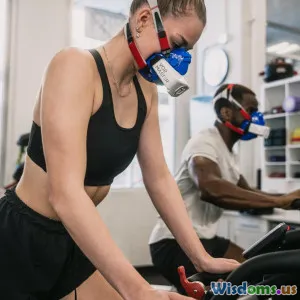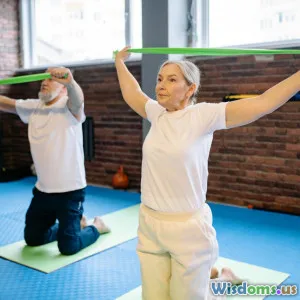
Exercise Physiology: What You Need to Know
5 min read Discover the essentials of exercise physiology and its impact on health and performance. (0 Reviews)
Exercise Physiology: What You Need to Know
Exercise physiology is a vital field that examines the body’s responses to physical activity and the adaptations that occur as a result. It blends elements of biology, chemistry, and health sciences to understand how exercise affects our body systems, performance, and overall well-being.
What is Exercise Physiology?
At its core, exercise physiology studies the physiological effects of physical activity on the body. This includes how our muscles, cardiovascular system, and metabolism respond to exercise. Professionals in this field analyze how various types of exercise influence health, fitness levels, and athletic performance.
Key Concepts in Exercise Physiology
-
Energy Systems: The body uses different energy systems depending on the intensity and duration of the activity. The three main systems are:
- ATP-PC System: Provides immediate energy for short bursts of activity (up to 10 seconds).
- Anaerobic Glycolysis: Supplies energy for moderate-intensity activities lasting about 30 seconds to 2 minutes.
- Aerobic System: Fuels prolonged, lower-intensity exercise (lasting several minutes to hours).
-
Muscle Physiology: Understanding the types of muscle fibers (slow-twitch vs. fast-twitch) is crucial. Slow-twitch fibers are more endurance-oriented, while fast-twitch fibers excel in power and strength activities.
-
Cardiovascular Responses: Exercise increases heart rate, cardiac output, and blood flow to working muscles. Over time, regular training leads to adaptations such as improved heart efficiency and increased capillary density.
-
Respiratory Responses: The respiratory system adapts to exercise by enhancing lung capacity and efficiency in oxygen uptake and carbon dioxide expulsion.
-
Hormonal Responses: Exercise stimulates the release of various hormones, including adrenaline and cortisol, which influence metabolism, energy production, and recovery.
The Role of Exercise in Health
Regular physical activity is fundamental to maintaining a healthy lifestyle. Exercise physiology helps us understand the health benefits associated with consistent exercise, such as:
- Reducing the risk of chronic diseases (e.g., heart disease, diabetes).
- Enhancing mental health by reducing symptoms of anxiety and depression.
- Improving sleep quality and overall mood.
- Supporting weight management through increased calorie expenditure.
Practical Applications of Exercise Physiology
- Personal Training: Trainers use exercise physiology principles to create tailored workout programs that meet individual needs and fitness goals.
- Rehabilitation: Physiotherapists apply these concepts to design recovery programs for patients recovering from injuries or surgeries, ensuring safe and effective rehabilitation.
- Sports Performance: Coaches and athletes use exercise physiology to optimize training regimens, improve endurance, and enhance strength, leading to better performance in competitions.
Conclusion
Understanding exercise physiology is essential for anyone interested in improving their health and fitness. By grasping the principles behind how our bodies respond to exercise, we can make informed decisions about our training, recovery, and overall lifestyle. Whether you are a casual gym-goer or a competitive athlete, knowledge of exercise physiology can empower you to achieve your fitness goals effectively and safely.
Further Reading
For those wanting to delve deeper into this fascinating field, consider exploring academic journals, enrolling in relevant courses, or following reputable health and fitness professionals who specialize in exercise physiology.
Rate the Post
User Reviews
Other posts in Exercise Physiology
Popular Posts















